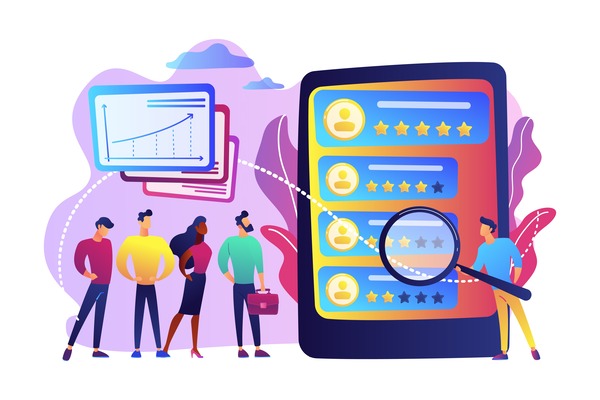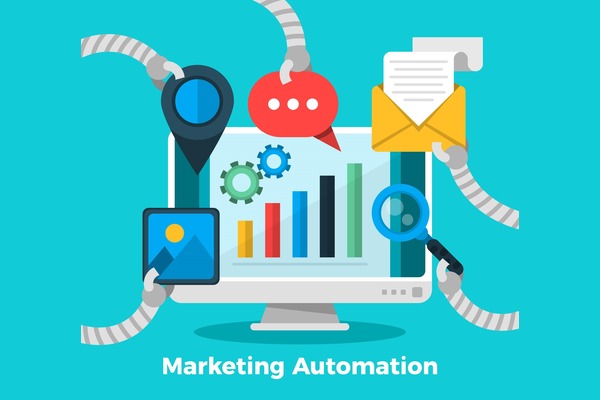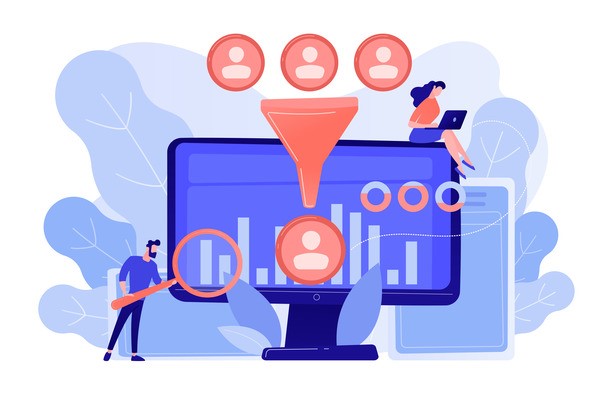
Your business reputation isn’t just important—it’s everything! In a world where customers rely on reviews, ratings, and social proof to make decisions, your business must stand out for the right reasons.
A single negative review or a troll can undo months of hard work, while positive feedback can help you win loyal customers. This is where reputation management tools come in. These tools do more than monitor reviews—they help you shape the narrative around your business, gain trust, and drive growth.
Here’s why reputation management tools are essential for every small business.
Why Reputation Management Tools Are Essential For Small Businesses?
1. Build Customer Trust
People trust businesses with a good reputation. Reviews and testimonials play a big role in buying decisions. If your business has glowing reviews, customers are more likely to choose you over competitors. Reputation management tools help you collect and showcase these reviews. They also help you respond to feedback, showing customers that you care about their experience.
2. Monitor Online Mentions
It’s not easy to keep track of what people say about your business online. Negative comments can spread quickly. Reputation management tools help you monitor your brand mentions across platforms. You’ll know when someone talks about your business and make a progressive response in time.
Addressing concerns on time can prevent small issues from escalating.
3. Improve Local SEO
Reviews influence search engine rankings. Businesses with many positive reviews often appear at the top of search results. Reputation management tools allow you to gather reviews and encourage satisfied customers to share their experiences online. This improves your visibility making it easier for potential customers to find your business online.
4. Boost Customer Engagement
Reputation tools make it easy to connect with customers. You can respond to reviews, thank customers for their feedback, or resolve issues they’ve raised. When customers see you’re active and engaged, they’re more likely to trust and support your business.
5. Gain Valuable Insights
Customer feedback offers a goldmine of insights. Reputation management tools help you analyze reviews to identify trends. Are customers raving about your excellent service? Or are they unhappy with delivery times? Understanding this feedback helps you make improvements that matter most to your audience.
6. Protect Your Brand’s Image
Negative reviews and false information can hurt your business. Reputation management tools let you address harmful content before it spreads. By responding professionally to complaints or correcting inaccuracies, you can maintain a positive image.
7. Save Time And Effort
Managing your reputation manually is time-consuming. Reputation management tools streamline the process. They automate review monitoring, feedback collection, and analysis. This saves you time and lets you focus on growing your business.
8. Stand Out From Competitors
In competitive markets, your reputation can set you apart. Businesses with strong online reputations attract more customers. Reputation management tools give you the edge by helping you highlight your strengths and address weaknesses effectively.
Common Mistakes To Avoid In Reputation Management
i) Ignoring Customer Feedback
Mistake: Not addressing customer reviews or feedback.
Impact: Makes customers feel undervalued and damages trust.
Solution: Respond to all feedback, whether positive or negative. Show appreciation for positive reviews and address concerns in a professional and timely manner.
ii) Responding Emotionally To Negative Reviews
Mistake: Reacting defensively or emotionally to criticism.
Impact: Escalates conflicts and harms your brand image.
Solution: Stay calm and professional. Apologize if needed and offer to resolve the issue privately.
iii) Using Generic Or Insincere Responses
Mistake: Paying for fake positive reviews or deleting negative ones.
Impact: Destroys trust if discovered and can lead to penalties from platforms like Google.
Solution: Focus on encouraging real, organic reviews from satisfied customers.
iv) Over-Automating Engagement With Customers
Mistake: Relying too heavily on automated responses or chatbots to handle customer interactions.
Impact: Makes customer interactions feel impersonal and may frustrate customers seeking genuine assistance.
Solution: Use automation to handle simple queries but ensure complex issues are addressed by real people. Balance efficiency with personalized communication to build trust and loyalty.
v) Not Using Reputation Management Tools
Mistake: Managing reputation manually or with outdated methods.
Impact: Inefficient processes and missed opportunities to improve.
Solution: Invest in reputation management tools to automate monitoring, feedback collection, and analysis.
The Difference In Reputation Management For A Small Business Vs. A Large Corporation
| Aspect | Small Business | Large Corporation |
| Scope of Reputation | Local or niche focus. Reputation management targets a smaller, more specific audience. | Global or national focus. Reputation management targets a wider, diverse audience across multiple regions. |
| Resources | Limited budget and staff for managing reputation. Tools and strategies are typically more cost-effective and streamlined. | Larger budget and dedicated teams for reputation management, allowing for more comprehensive and complex strategies. |
| Customer Interaction | Personal and direct communication with customers. Quick response times due to fewer customers and a smaller team. | Less personal interaction. Customer queries are handled by larger teams, which may cause slower response times. |
| Platform Usage | Focus on local review sites, social media, and direct customer feedback platforms. | Multiple platforms including global review sites, media outlets, and social media across different regions and languages. |
| Response Strategy | Responses are often personal, human, and tailored to each customer’s feedback. | Responses are more standardized due to the larger volume of feedback. Often involves PR teams or legal departments. |
| Brand Monitoring | Manual monitoring of reviews and mentions due to fewer resources. Tools are used to track key mentions. | Advanced monitoring systems to track mentions across a broader spectrum of platforms, often in real-time. |
| Crisis Management | Must address issues quickly and with personal touch to avoid damaging the local reputation. | Can manage crises with a larger, coordinated PR strategy, but may face more scrutiny due to the size of the company. |
| Customer Loyalty Building | Direct engagement and personalized follow-up help build strong customer loyalty. | More difficult to build individual loyalty due to the scale, but brand loyalty is cultivated through campaigns and customer service. |
| Negative Review Management | Easier to resolve individual complaints quickly. Negative reviews can significantly impact the local reputation. | Larger volume of negative reviews to address, but impacts are spread across a wider customer base, making individual reviews less damaging. |
| Feedback Collection | Often collects feedback through direct customer interactions and small-scale surveys. | Uses advanced survey tools, big data, and analytics to gather feedback from a vast customer base. |
Choosing The Right Reputation Management Tool
Reputation management isn’t just about damage control—it’s about building trust and credibility.
Small businesses that invest in reputation management tools are better equipped to succeed. These tools do the heavy lifting so you can focus on what you do best: delivering value to your customers.
Helium CRM offers a robust suite of reputation management tools tailored to the needs of small businesses. Its platform simplifies the process of collecting and managing customer reviews through automated review campaigns. By leveraging tools like SMS and email marketing, businesses can actively request feedback from customers, which can result in up to 40% more reviews. This helps enhance a brand's online visibility and trustworthiness.
Ready to take control of your reputation? A comprehensive CRM solution with built-in reputation management tools is all you need to pace up in the competition. Don’t let your competitors get ahead. Invest in tools that protect and grow your business.



